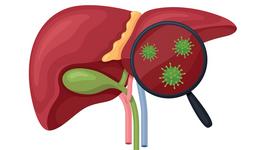Base Editing Corrects Common Haemophilia A Mutations and Restores Factor VIII Expression in Disease Models
CMN Intelligence - The World’s Most Comprehensive Intelligence Platform for CRISPR-Genomic Medicine and Gene-Editing Clinical Development
Providing market intelligence, data infrastructure, analytics, and reporting services for the global gene-editing sector. Read more...
Haemophilia A (HA) a rare X-linked recessive bleeding disorder that arises through mutations in the F8 gene, which encodes for coagulation factor VIII (FVIII).
The current treatment approach to severe HA is based on replacement therapy via lifelong prophylactic injections of FVIII. While this approach does effectively control bleeding in HA, it is limited by the short half-life of FVIII, the need for frequent administration, and the development of anti-FVIII neutralising antibodies, which occurs in about one third of all treated HA patients.
The single-dose gene therapy valoctocogene roxaparvovec-rvox, which was approved by the FDA 2023 could provide a cure for severe HA but the durability of such a therapy is unknown.
To explore whether F8 gene correction via base- or prime editing could restore FVIII production, researchers in Italy carried out screening assays in HEK293T cells transiently expressing FVIII variants to identify the best-performing base- and prime-editing systems for each variant.
Among their findings, they observed the highest rescue of FVIII expression (up to 25% of rFVIIIwt) for the p.R2166* and p.R2228Q mutations. They also showed that in stable clones, the mutation reversion on DNA (∼24%) was consistent with the rescue of FVIII secretion and activity (20-30%). Attempts to lentivirally deliver the selected BE systems in engineered blood outgrowth endothelial cells harbouring the p.R2166* and p.R2228Q variants led to dose-dependent rescue of secreted functional FVIII.
The findings, published this week in The Journal of Thrombosis and Haemostasis, provide the first proof-of-concept for BE/PE-mediated correction of HA-causing mutations and highlight a potentially new avenue towards curing HA.
Read the full article here.
To get more CRISPR Medicine News delivered to your inbox, sign up to the free weekly CMN Newsletter here.
Tags
CLINICAL TRIALS
Sponsors:
Base Therapeutics (Shanghai) Co., Ltd.
Sponsors:
Base Therapeutics (Shanghai) Co., Ltd.







